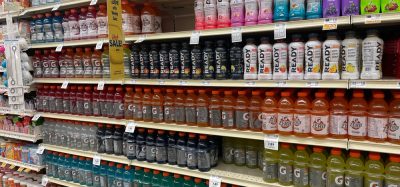Food fraud – an evolving crime with profit at its heart
- Like
- Digg
- Del
- Tumblr
- VKontakte
- Buffer
- Love This
- Odnoklassniki
- Meneame
- Blogger
- Amazon
- Yahoo Mail
- Gmail
- AOL
- Newsvine
- HackerNews
- Evernote
- MySpace
- Mail.ru
- Viadeo
- Line
- Comments
- Yummly
- SMS
- Viber
- Telegram
- Subscribe
- Skype
- Facebook Messenger
- Kakao
- LiveJournal
- Yammer
- Edgar
- Fintel
- Mix
- Instapaper
- Copy Link
Posted: 23 April 2020 | Arun Chauhan | 1 comment
Despite advances in legislation, regulation, technologies and transparency, food fraud continues to threaten both lives and livelihoods. Here, Arun Chauhan examines this evolving crime and suggests measures for strengthening consumer trust.


The food landscape is changing rapidly, responding to the rise in veganism, a greater focus on allergens and demand for craft and artisan fare in the home and in restaurants. The consumer audience is also becoming increasingly engaged, prioritising sustainability, for example, checking whether soya bean supplies are from sources that are impacting on rainforests.
Food fraud refers to the deliberate and intentional substitution, addition, tampering with, or misrepresentation of food, ingredients or packaging at some stage of a product’s distribution or production cycle. It also refers to false or misleading statements made about a food or drink product for economic gain.
Misrepresentation vs mislabelling
Misrepresentation is a false statement presented as fact that influences someone to rely on that statement to make a decision. In this case, the decision is to make a purchase. The person making the statement is liable for any loss or damage caused to the person who was misled if they (the person who made the statement) did not have grounds to believe in it or were simply reckless in doing so.
Mislabelling, however, is often used to describe a simple mistake or mishap – but is there really a clear difference between the two concepts? In theory, it can be an innocent mistake but that may be a small isolated issue. When we get larger adulteration in the supply chain, at some stage in that supply chain, however far along it may be, there is likely to have been some form of misrepresentation made as to the content of an item being supplied such that it leads to the mislabelling of the final product.


New trends in the food industry have seen labels such as ‘craft’, ‘artisan’, ‘handmade’ or ‘natural’ become more popular. However, the lines are blurred when it comes to having legally defined attributes that companies must adhere to when describing their products.
Such foods command a premium as they are perceived to be higher quality and also imply a much more labour-intensive and skilled processes in their production. Artisan bakers and makers of craft beer have been warning that supermarkets or large corporations may be using misleading terms like handmade, artisan and natural to take advantage of the premium people would pay for such products. In fact, these products may often contain the ingredients that are more typical of mass production and are made using industrial processes.
New trends in the food industry have seen labels such as ‘craft’, ‘artisan’, ‘handmade’ or ‘natural’ become more popular
For example, sourdough bread sales are on the rise because of its perceived health benefits. This is traditionally made using flour, salt and water, but an investigation by Which1 magazine in 2018 revealed that the majority of sourdough loaves sold in supermarkets also contained additional ingredients. Many loaves were found to contain ingredients such as yeast, ascorbic acid and yoghurt and vinegar which can impact the health of people with diabetes or irritable bowel syndrome who select sourdough precisely because they believe it to be yeast free and low in sugar.
The Real Bread Campaign group says it wants to see a legal definition of the terms “sourdough” or “artisan bread”, so stores cannot “misinterpret” them2. The current advice is to check the small print or ask if you are uncertain. Without legal definitions, it is hard to challenge but clearly those impacted feel strongly that misrepresentation is happening and that the Real Bread Campaign is lobbying the government for better bread ingredient labelling laws to enable consumers to make informed choices.
When it comes to organic food, the regime3 is far stricter, and produce must be certified by one of the control bodies such as the Soil Association, Organic Food Federation or Organic Farmers & Growers CIC.
However, despite the level of clarity around the rules, Professor Chris Elliott, director at the Institute for Global Food Security, warns that the UK should not be complacent when it comes to food fraud. “For several years I have warned that I believe the organic sector to be highly vulnerable to fraud,” he said. “For my efforts, I have been on the receiving end of some fairly negative feedback from some within the organic movement. Quite possibly this will happen again, but I see more and more examples of organic fraud happening in various parts of the world and I am concerned this will hit the UK at some point.” Specifically, he warns that there are not sufficient, reliable checks in the organic food supply chain to prevent fraud happening. If he is correct, this is the opportunity landscape for those that wish to knowingly misrepresent their product for profit.
Keeping pace with change
The pace of change in food production is rapid and the industry responds to changes in British tastes and demands. According to the British Takeaway campaign, orders for vegan takeaways grew by 388 percent between 2016 and 2018 and vegetarian orders rose by 137 percent over the same period.


Misrepresentation is a false statement presented as fact that influences someone to rely on that statement to make a decision.
The rise in plant-based foods that are processed in the lab to look, taste and even have the texture of meat is prompting consumer concerns that there is the potential for them to be misled on ingredients. A report in the Guardian4 last summer highlighted the suspicions that these meet substitute products are prompting distrust among consumers. Meanwhile, the Centre for Food Safety in the US is calling for the Food & Drink Administration to block the sale of the meat-like, plant-based, Impossible Burgers on the grounds that the product contains untested lab produced food dyes to create a ‘bleeding effect’.5
As new foods, including meat substitutes, become mainstream, the sources and manufacture of foods is becoming increasingly complex, yet for those that lead the selling of these products, if they are in effect the ‘controlling minds’, they may find themselves responsible for knowingly or recklessly misleading their customers and/or consumers. Some may see it as sharp practice, others may interpret it as misleading and dishonest. We are talking about fine margins of definition and interpretation. Therefore, the role of leadership and the establishment of a culture that priorities measures against food fraud (even if it increases cost and impacts profit) is more important than ever.
Building consumer trust
Rigour must be present at all stages of the supply chain. Where there is opportunity and extra money to be made, the drive for profits through tapping into trends and taking advantage of consumers is ever present.
It is vitally important to instil in the culture, and throughout the food supply chain, that consumer trust is the real key to profitability and growth. Compromise your customers’ trust and you and your business could potentially lose everything.
The rise in plant-based foods that are processed in the lab to look, taste and even have the texture of meat is prompting consumer concerns that there is the potential for them to be misled on ingredients
According to NFU Mutual’s latest food fraud report6 nearly three quarters of people believe there to be an issue with food fraud in the UK. One third also said that they are less trusting of products and retailers than they were five years ago, compared with only nine percent whose trust has increased.
The study also found that producers are assumed to be most likely to blame for product mishaps by 63 percent of people and a fifth of people would blame the retailer first. Distributors or transporters would be blamed by nine percent and a grower or farmer by just six percent. Levels of trust are also affected by the types of outlet that serve the food. Takeaways and online sellers have the most work to do to enhance consumer confidence.
The first stage of preventing fraud is to think about it differently; see your company culture from each employee’s point of view
Over two thirds of consumers actively take regular measures to ensure their food is not misleading, regularly reading the ingredients on products, or the front label. Seventeen percent avoid certain foods altogether that they believe could be susceptible to food fraud.
Doubts about the provenance of food, whether validated or not, mean that businesses need to work harder than ever to gain the trust of consumers. Those that put in the effort to enshrine the importance of building trust and operating with integrity at all levels of both their own business and those of their suppliers stand to thrive. As reputations come under increasing scrutiny online, the risks of complacency are there for all the world to see.
The first stage of preventing fraud is to think about it differently; see your company culture from each employee’s point of view – is it positive or does something need to change? Our people are our eyes and ears, engage with them and they will engage with you and help you see what you do not, be that risk or opportunity. This is at the heart of businesses that combat fraud better than others as they are closer to the problem so better placed to think of practical solutions.
Preventing and mitigating the risk of food fraud is as much about process and policies as it is about ensuring the creation of a culture that is supported by those policies and procedures. This will lead to better information sharing and whistle blowing throughout the entire industry.
References
- https://www.which.co.uk/news/2018/09/…
- https://www.sustainweb.org/realbread/…
- https://www.gov.uk/guidance/organic-food…
- https://www.theguardian.com/lifeandstyle…
- https://www.centerforfoodsafety.org/…
- https://www.nfumutual.co.uk/globalassets/…
About the author
Arun Chauhan is the founder of Tenet Compliance & Litigation – a specialist law firm helping businesses reduce their risk exposure to fraud. Arun is the deputy chair of the charity, the Fraud Advisory Panel, and a regular expert contributor to the BBC. Arun will be moderating a panel discussion at New Food’s Food Integrity conference, ‘Building Transparency & Trust’.
Related topics
Food Fraud, Food Safety, Regulation & Legislation, The consumer










Thanks for the information. This article was really informative so that it declared the most possible Food fraud and also it suggested some preventive solutions.